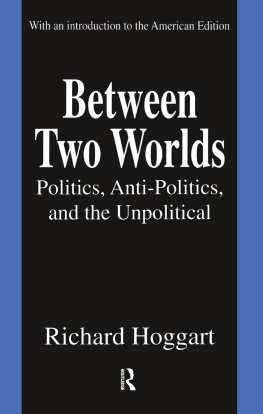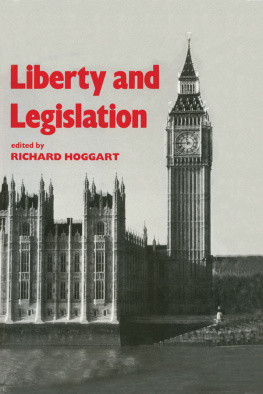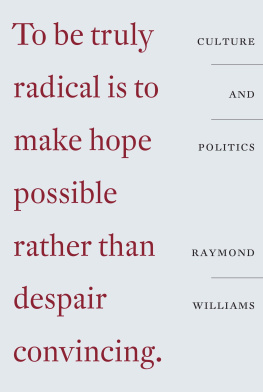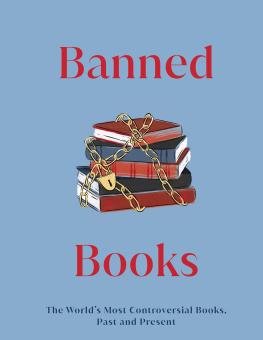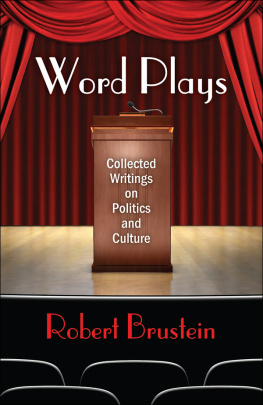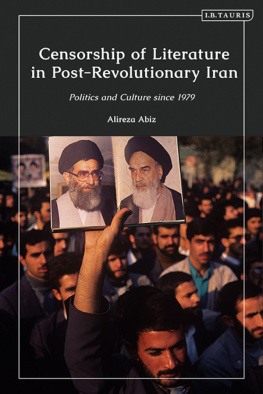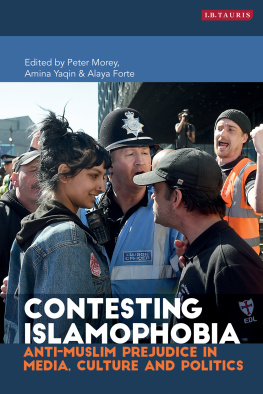First published 2002 by Transaction Publishers
Published 2019 by Routledge
2 Park Square, Milton Park, Abingdon, Oxon OX14 4RN
52 Vanderbilt Avenue, New York, NY 10017
First issued in paperback 2019
Routledge is an imprint of the Taylor & Francis Group, an informa business
Copyright 2002 by Taylor & Francis
All rights reserved. No part of this book may be reprinted or reproduced or utilised in any form or by any electronic, mechanical, or other means, now known or hereafter invented, including photocopying and recording, or in any information storage or retrieval system, without permission in writing from the publishers.
Notice:
Product or corporate names may be trademarks or registered trademarks, and are used only for identification and explanation without intent to infringe.
Library of Congress Catalog Number: 2001027975
Library of Congress Cataloging-in-Publication Data
Hoggan, Richard, 1918-
Between two worlds : politics, anti-politics, and the unpolitical / Richard Hoggan ; with an introduction to the American edition.
p.cm.
Contains essays originally published between 1981 and 1998 and one essay not previously published.
Includes index.
ISBN 0-7658-0097-7 (cloth: alk. paper)ISBN 0-7658-0946-X (pbk: alk. paper)
1. Great BritainCivilization20th century. 2. Lawrence, D.H. (David Herbert), 1885-1930Criticism and interpretation. I. Title.
DA566.4 .H5372001 |
941.082dc21 | 2001027975 |
ISBN 13: 978-1-138-50760-9 (pbk)
ISBN 13: 978-0-7658-0097-8 (hbk)
T HESE ESSAYS WERE first published as shown below. I am grateful to all the journals and publishers named for those first appearances. Almost all have been revised, some substantially. As a result, two or three have been made into one. A few elements have also appeared, since their first publication, in subsequent books of mine. I have sought to avoid word-by-word repetition and only retained these elements where they seem essential to the final essay as printed here.
Are Museums Political? The British Museums Second Annual Franks Lecture, London, May, 1998. Parts have been incorporated from a paper given to a Woodrow Wilson seminar at the Smithsonian Institute, Washington D.C., 1996.
Noble Aspirations: UNESCO and Civil Society, A Memoir in The Conscience of the World: The Influence of the NGOs on the UN System, ed. P. Willetts, Hurst, London, 1995.
Broadcasting, Democracy and the Enabling Principle. From Ariel at Bay, Reflections on Broadcasting and the Arts, essays in honour of Philip French, ed. R. Carver, Carcanet, Manchester, 1990. Contains elements from pieces in the Political Quarterley and the Daily Express.
D. H. Lawrences Country, in Writers and their Houses, ed. K. Marsh, Hamish Hamilton, London, 1993.
The Rainbow, Introduction to the Folio Society edition, London, 1981.
Women in Love, Introduction to the Folio Society edition, London, 1982.
Lady Chatterley and the Censors, in Figures Mythiques, ed. P. Vitoux, Editions Autremont, Paris, 1998. Elements also appeared in An Imagined Life, Chatto and Windus, London, 1992.
The Road to Wigan Pier, Introduction to the Penguin edition, London, 1989.
The State versus Literature, conference of the Working Party on Libraries and the Book Trade, London, January 1986. Reprinted in Universities Quarterly, 40/4, 1986.
Freedom to Publish: Even Hateful Stuff, 32nd Triennial Conference of the International Publishers Association, London, 1998. Reprinted in the Proceedings of the Congress, Books in the 1990s, London, 1998.
Reviewers and Reviewing, in Society, 34/3, 1997, Rutgers University, New Jersey, USA.
Politics, Anti-Politics and the Unpolitical, conference on The University into the Twentieth Century, University of Victoria, British Columbia, May 1984. Published in Proceedings, 1984.
Gamekeepers and Poachers, in New Universities Quarterly, 22/2, 1978.
Between Two Worlds: Public and Private Discourses, Lecture at the University of Massachusetts, 1985, published in Universities Quarterly, 40/2, 1986.
Literacy Is Not Enough, talk at a Book Trust seminar, the British Library, autumn 1998. Published in Literacy Is Not Enough, ed. B. Cox, Manchester University Press, Manchester, 1998.
Figures from a Distant Past, Farnham, autumn 19992000. Not previously published.
Looking Back, conversation with Nicolas Tredell, London, 1993. Published in P. N. Review, 20/1, 1993. With elements from a University of Cardiff interview, 1997, published in The International Journal of Cultural Studies, ed. J. Hartley, 1/1, 1998.
D URING A YEAR at the University of Rochester, New York, more than forty years ago, I took part in a day of lectures given by the faculty, designed to exhibit their fine scholarship to local benefactors. Afterwards my closest friend there took me for a walk and patiently rebuked me. What I had said about modern English literature was interesting; the way I said it wasnt. I sounded too relaxed and chatty, my audience expected academics to be solemn, their manner marmoreal.
In the mid-sixties I gave a named annual lecture at Columbia University in New York City. It was subsequently published, so was presumably adequately weighty. Afterwards, I walked to supper with Lionel Trilling. He said he had enjoyed the lecture (incidentally, that enjoyed is a favoured word in Cambridge, England. You enjoy but do not at such a time offer a judgment, even one which would be contained in, say, admired). Trilling went on, roughly to this effect: I couldnt give a lecture in that manner. In the States we cant assume that sort of unbuttoned relationship with our academic audiences. We have to keep a kind of distance.
Back home some years later a very distinguished academic at Cambridge remarked on my habitual use of we, which suggests that I am talking to a known and identified audience; the descendants, perhaps, of Dr. Johnsons common reader, with whom he rejoiced to concur. But, the distinguished academic went on, it is very unlikely that there is such an audience today. Readers of best-sellers, yes; and readers of technical works; and of course academics. But no substantial lay audience who find pleasure in reading for intellectual stimulation, to increase self-knowledge and widen their sense of the way their world is going. I think that critic would have agreed that many highly skilled professionals do read outside their professionalism; he doubted whether there was any sizeable body of, again, lay readers, amateurs in both the French and the English senses, some of whom may not be professionals at all. He presumably would not accept that, taken together, all those make up todays common readers.

